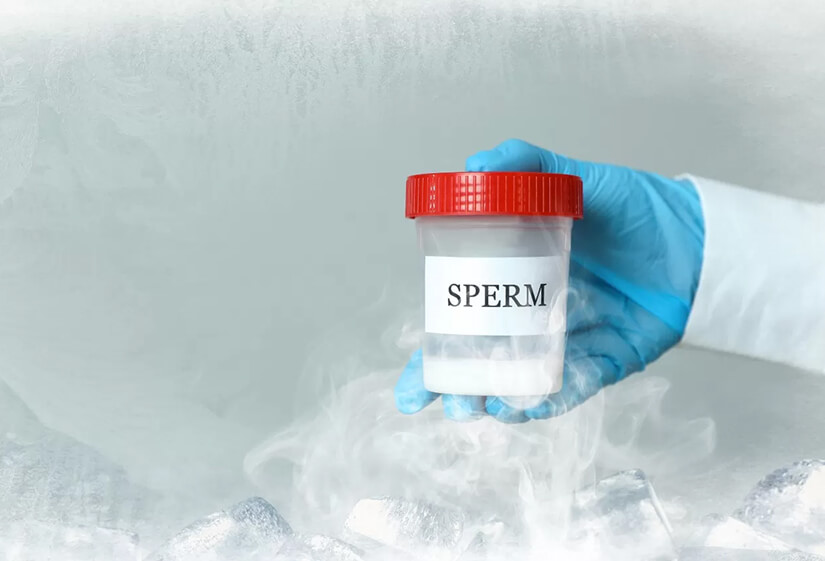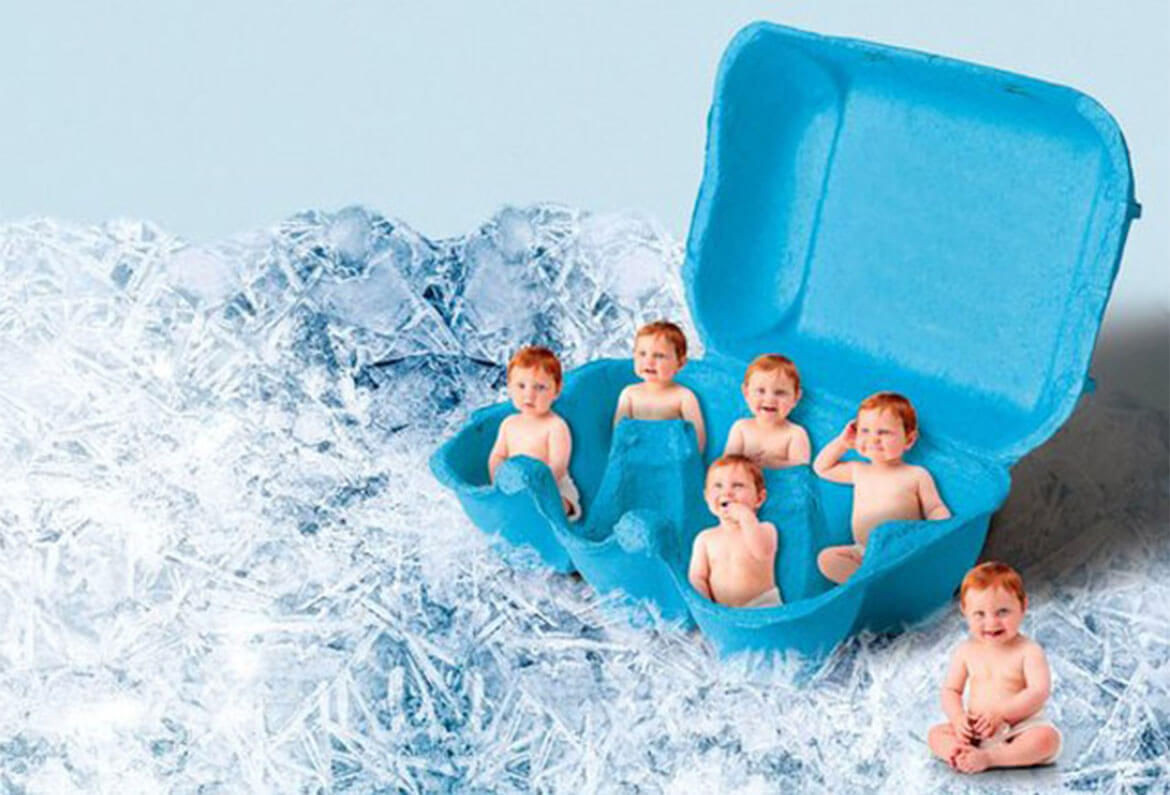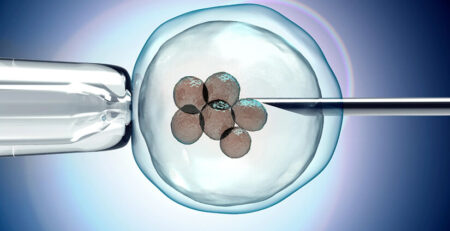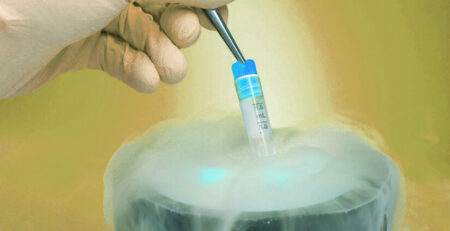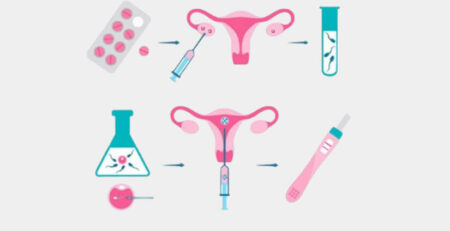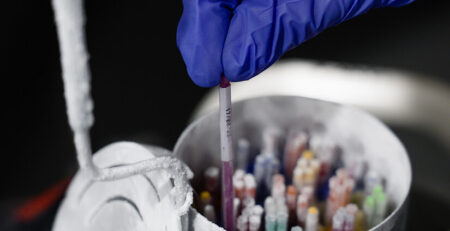How Long Can Sperm Be Frozen? Understanding the Duration and Viability
Imagine being able to pause time—freezing a moment and returning to it whenever needed. That’s essentially what happens in sperm freezing duration in Delhi. Whether for fertility preservation, medical treatments, or personal reasons, sperm cryopreservation offers a way to secure future parenthood. But just how long can frozen sperm remain viable? Let’s explore the science, longevity, and success rates behind sperm cryopreservation and its impact on fertility treatments.
What is Sperm Freezing?
Sperm freezing, also known as sperm cryopreservation, is a scientifically advanced technique that allows sperm cells to be stored at extremely low temperatures—typically -196°C (-321°F) using liquid nitrogen. At this temperature, all biological activity halts, preserving the sperm’s structure and function indefinitely. This process is widely used by individuals undergoing medical treatments like chemotherapy, those considering vasectomy, or couples planning for assisted reproductive technologies such as IVF or ICSI.
The cryopreservation process involves multiple stages:
- Initial Assessment: A semen sample is collected and analyzed for sperm count, motility, and morphology.
- Mixing with Cryoprotectants: Special solutions called cryoprotectants are added to prevent ice crystal formation, which can damage sperm cells.
- Gradual Freezing: The sample is slowly cooled before being plunged into liquid nitrogen.
- Storage: The sperm is stored in secure cryogenic tanks until it is needed for use.
This technique ensures that sperm remains viable for future use, even decades later.
How Long Can Sperm Be Frozen and Still Be Viable?
Theoretically, sperm can remain frozen indefinitely. Scientific evidence and clinical studies suggest that sperm stored for decades can still be viable and successfully used for conception. The longest recorded case of successful fertilization involved sperm frozen for over 40 years! However, most fertility experts suggest that sperm remains optimally viable for 10 to 15 years, although longer durations do not necessarily impact success rates.
A key factor in sperm freezing duration is the initial quality of the sperm and the cryopreservation technique used. If the sperm is healthy at the time of freezing and stored under ideal conditions, its potential for fertilization remains high, even after decades.
Additionally, frozen sperm does not undergo aging or degradation since the biological activity is halted entirely. This means that sperm quality is essentially preserved at the level it was before freezing, making long-term storage a viable option for fertility preservation.

Does Freezing Affect Sperm Quality?
A common concern among men considering sperm cryopreservation longevity is whether freezing affects sperm quality. While some sperm may not survive the freezing and thawing process, studies indicate that up to 50-70% of sperm retain their motility and function post-thawing. Factors that influence sperm viability include:
- The quality of sperm before freezing
- The presence of cryoprotectants to prevent ice crystal damage
- The freezing and thawing protocol used
It is important to note that sperm that do not survive the freezing process are typically those with pre-existing weaknesses. Healthier sperm generally withstand freezing and thawing without issues. This is why sperm analysis before freezing is a critical step—it ensures that only viable sperm are preserved.
In other words, viability of frozen sperm is less about how long it’s been stored and more about how well it was preserved in the first place.
Does the Age of Sperm at Freezing Matter?
Yes, to some extent. Younger, healthier sperm generally have higher motility and better morphology, which contributes to improved post-thaw success rates. However, even sperm from men in their 40s or 50s can be effectively frozen and used for conception later.
Medical studies indicate that while sperm quality declines with age, this decline is gradual. Men in their 40s or 50s may still produce sperm that can be effectively frozen and later used successfully in assisted reproductive procedures. This is why sperm freezing is recommended as a proactive step for men considering parenthood later in life.
Can Frozen Sperm Be Used for Natural Conception?
Frozen sperm is typically used in assisted reproductive techniques rather than natural conception. After thawing, sperm can be introduced into the female reproductive system or utilised for fertilization by:
- Intrauterine insemination (IUI)
- In-vitro fertilization (IVF)
- Intracytoplasmic sperm injection (ICSI)
The choice depends on sperm quality post-thaw and the couple’s specific fertility needs. While frozen sperm can theoretically be used in natural conception, its success depends on how well the sperm survives the thawing process.
Getting pregnant is now easier
Book IVF Consultation
What Happens During the Thawing Process?
Thawing is a critical step in sperm freezing duration. The sperm is gradually warmed and rehydrated to prevent sudden temperature shocks that can damage cell membranes. The entire process is closely monitored, ensuring only the best-quality sperm are used for fertilization.
Thawed sperm is then assessed for motility, morphology, and viability before being used in fertility treatments. The survival rate of sperm post-thawing is influenced by the freezing technique, storage conditions, and the initial quality of the sperm sample.
Success Rates of Using Frozen Sperm
Success rates vary based on several factors, including the fertility health of both partners and the method of assisted reproduction. Generally:
- IUI success rates using thawed sperm range between 10-20% per cycle.
- IVF and ICSI offer higher success rates since the sperm is directly introduced to the egg.
Long-term studies have confirmed that babies conceived using frozen sperm do not have higher risks of birth defects or developmental issues, making sperm cryopreservation a reliable fertility preservation method.
Who Should Consider Sperm Freezing?
Sperm freezing, also known as sperm cryopreservation, is a process that allows men to preserve their fertility for future use. The viability of frozen sperm remains high when stored under optimal conditions, making it a reliable option for those who may face fertility challenges later in life. But who should consider this process?
- Men Undergoing Medical Treatments
Individuals diagnosed with conditions requiring chemotherapy, radiation, or surgery affecting reproductive organs should consider sperm cryopreservation. Cancer treatments, particularly, can damage sperm production and quality, leading to infertility. Preserving sperm before beginning treatment provides the opportunity to father biological children in the future.
- Men with High-Risk Occupations
Certain professions expose men to environmental hazards or physically demanding conditions that could impair fertility over time. These include:
- Military personnel who may face injuries or prolonged exposure to hazardous environments.
- Professional athletes whose strenuous physical activity or injuries could impact their reproductive health.
- Workers in industries dealing with chemicals, radiation, or extreme temperatures that could affect sperm quality and sperm freezing duration.
- Men Planning a Vasectomy
Many men opt for vasectomy as a permanent birth control method but may later reconsider due to changing circumstances, such as remarriage or a desire for more children. Freezing sperm before the procedure ensures they have viable options for conception later, avoiding the need for reversal surgery.
- Couples Undergoing Fertility Treatments
Couples undergoing assisted reproductive technologies (ART), such as in vitro fertilization (IVF) or intrauterine insemination (IUI), often benefit from having backup viable frozen sperm. If fresh sperm collection is challenging on the day of treatment, previously frozen sperm can be used without compromising fertility success rates.
- Individuals Facing Age-Related Fertility Decline
As men age, sperm quality and motility gradually decrease. While men can father children later in life, age-related decline can make conception more difficult and increase the risk of genetic abnormalities. Sperm cryopreservation ensures that sperm collected at a younger, healthier stage remains available for future use, preserving reproductive potential.
How Long Can Sperm Be Frozen?
One of the most common concerns is sperm freezing duration. Research shows that sperm can remain viable for decades when stored properly in liquid nitrogen at ultra-low temperatures (-196°C). Cases have been recorded where sperm frozen for over 20 years has successfully resulted in pregnancies. The key factor influencing sperm longevity is the cryopreservation process and maintaining storage at optimal conditions.
For those considering sperm freezing, consulting a fertility specialist can provide clarity on storage options, potential uses, and long-term preservation plans.
Is There a Time Limit on How Long Sperm Can Be Stored?
Legally, different countries have various regulations on sperm storage duration. In India, sperm is typically stored for up to 10 years, with options to extend storage based on individual circumstances. However, there is no biological limit—meaning as long as the sperm is kept in ideal conditions, it remains viable.
Making an Informed Decision About Sperm Freezing
For those considering sperm freezing duration, the key takeaway is that frozen sperm remains viable for decades if stored correctly. The success of viability of frozen sperm depends more on sperm quality at the time of freezing than the duration itself.
If you are looking for expert guidance on fertility preservation, Dr. Rhythm Gupta, a reputed IVF specialist in Delhi, offers personalized consultations and advanced cryopreservation techniques to ensure the best possible outcomes. Whether you’re planning for the future or undergoing medical treatment, now is the right time to secure your fertility options. Schedule a consultation today!

Dr. Rhythm Gupta
Consultant Obstetrician,
Gynaecologist & Infertility Specialist,
MBBS, M.S Obstetrics & Gynaecology
At Excel IVF, we don’t just treat tests and parameters. We partner with you through the emotional, scientific, and medical journey of fertility. Here, Dr. Rhythm Gupta, the leading IVF specialist in Delhi, shares insights from her years in reproductive medicine, breaking down myths, best practices, and what matters most in your path to becoming a parent.
Book a consultation today to understand better and begin your parenthood journey. Call: +91-8920963596 or Email Us: excelivf@gmail.com

